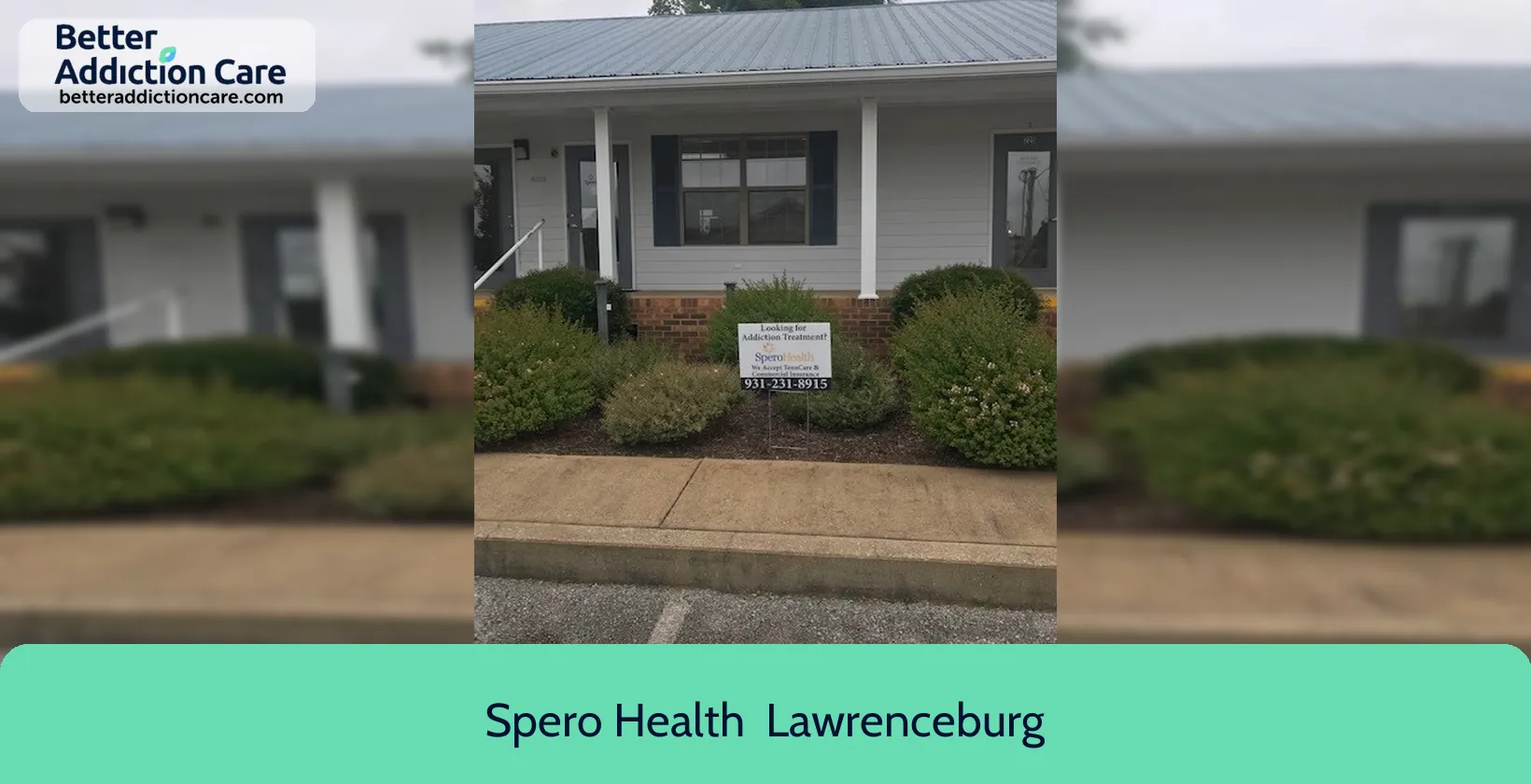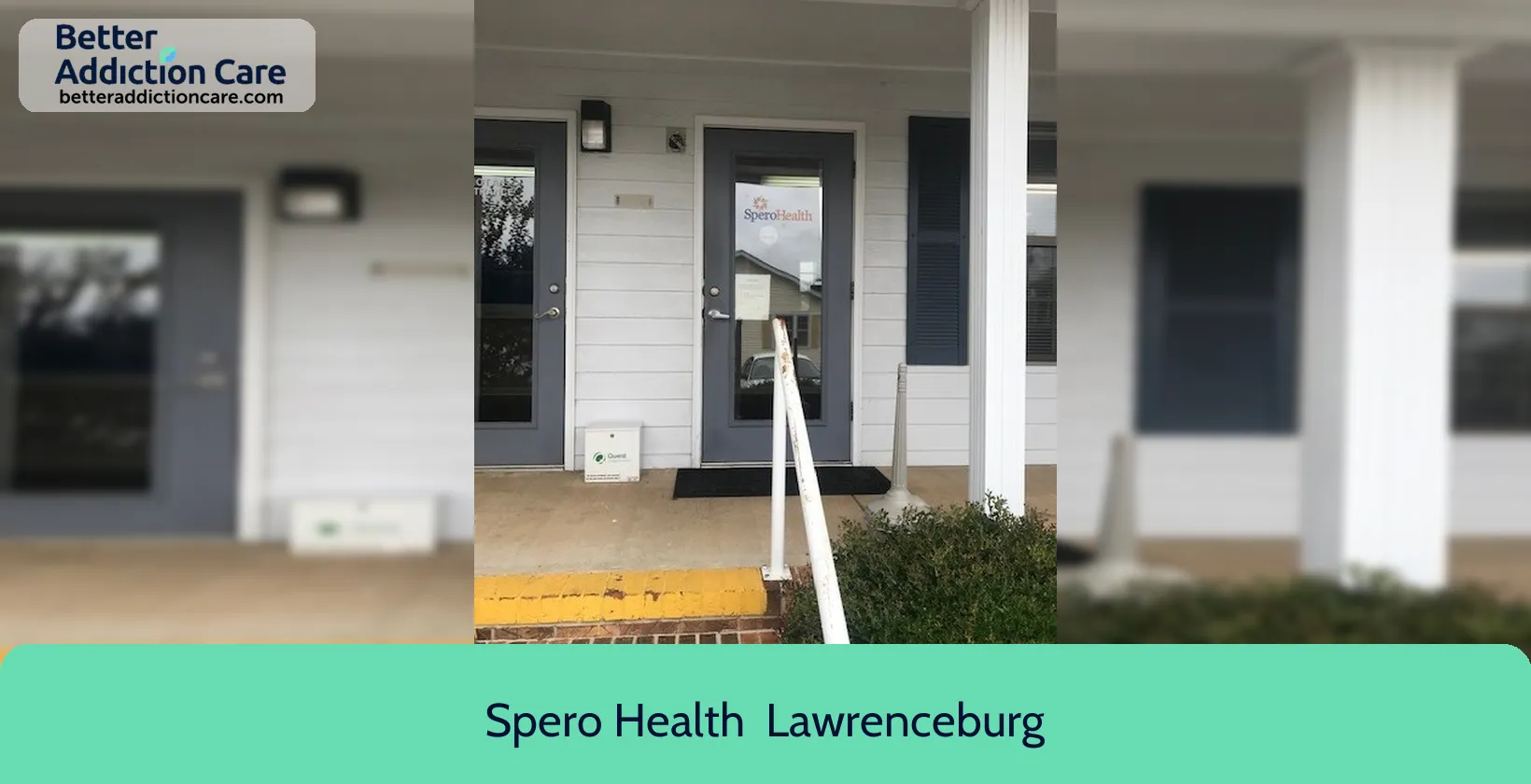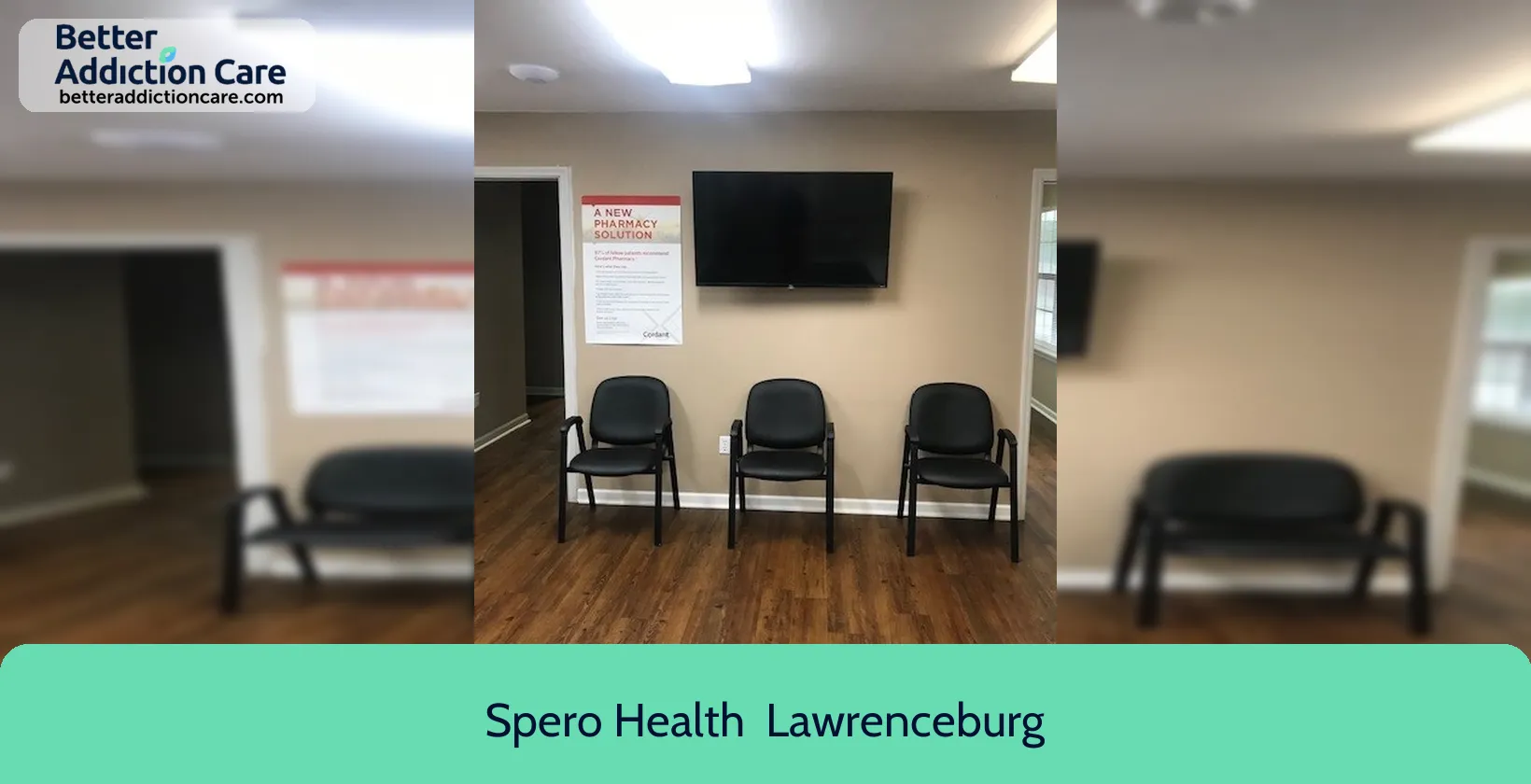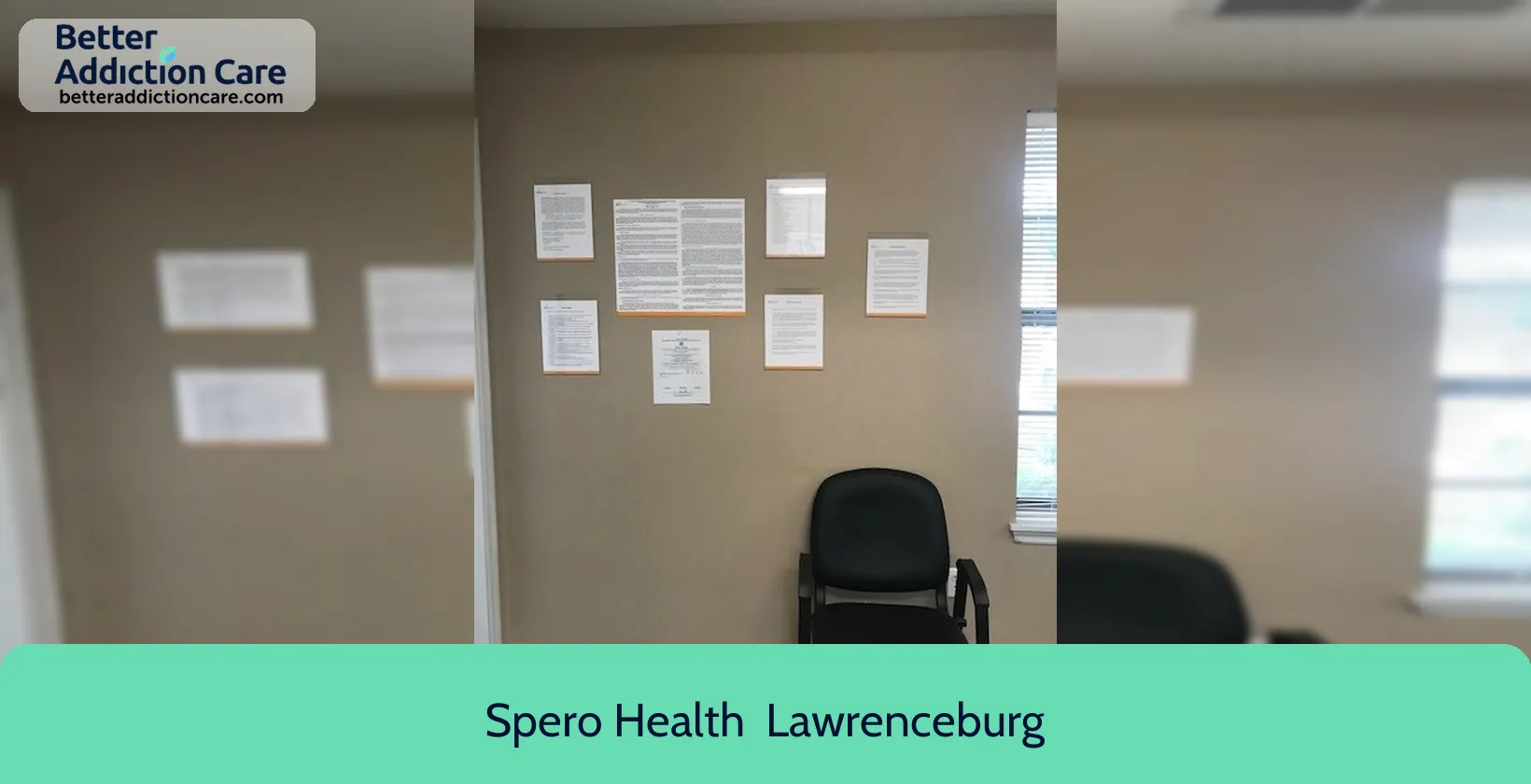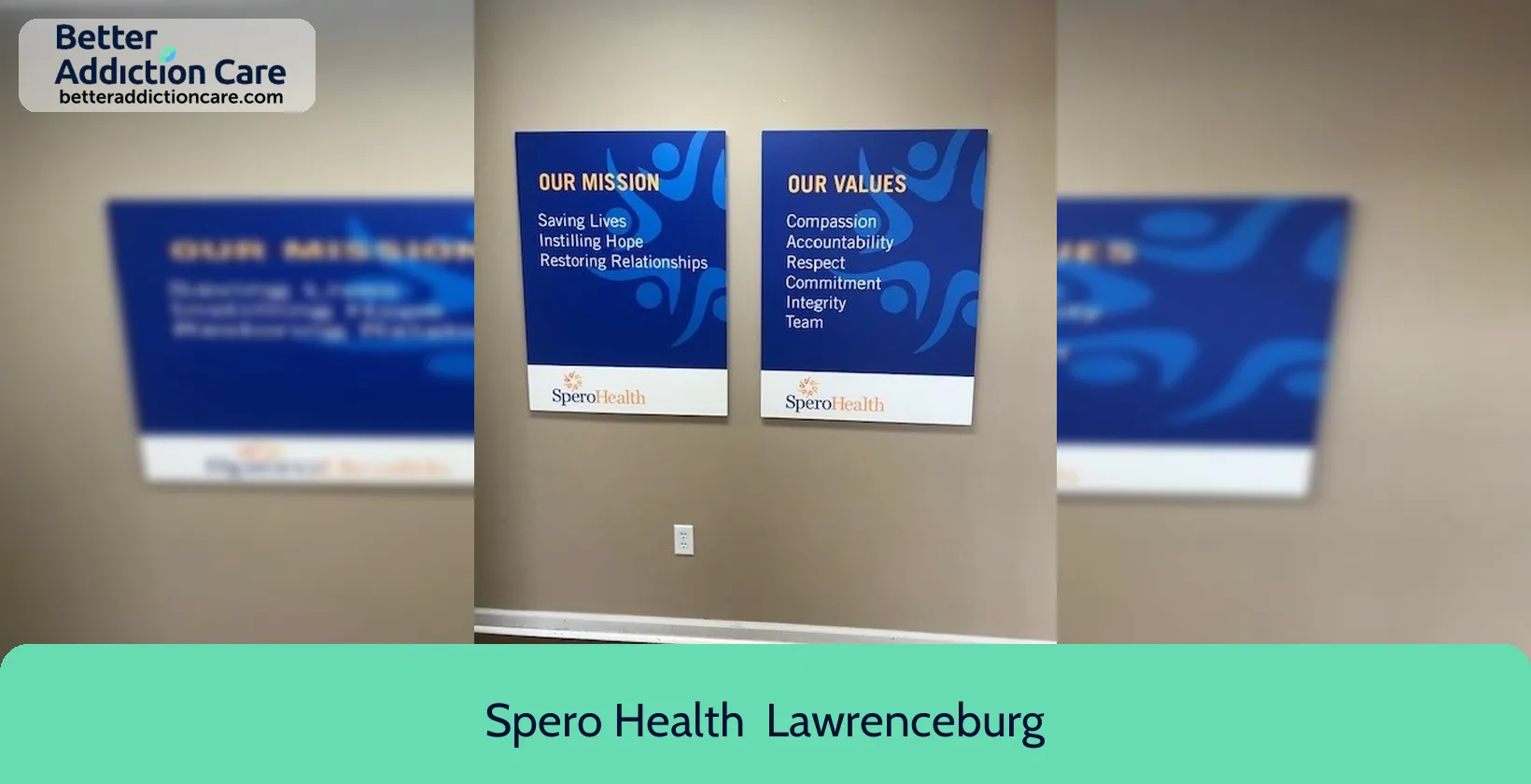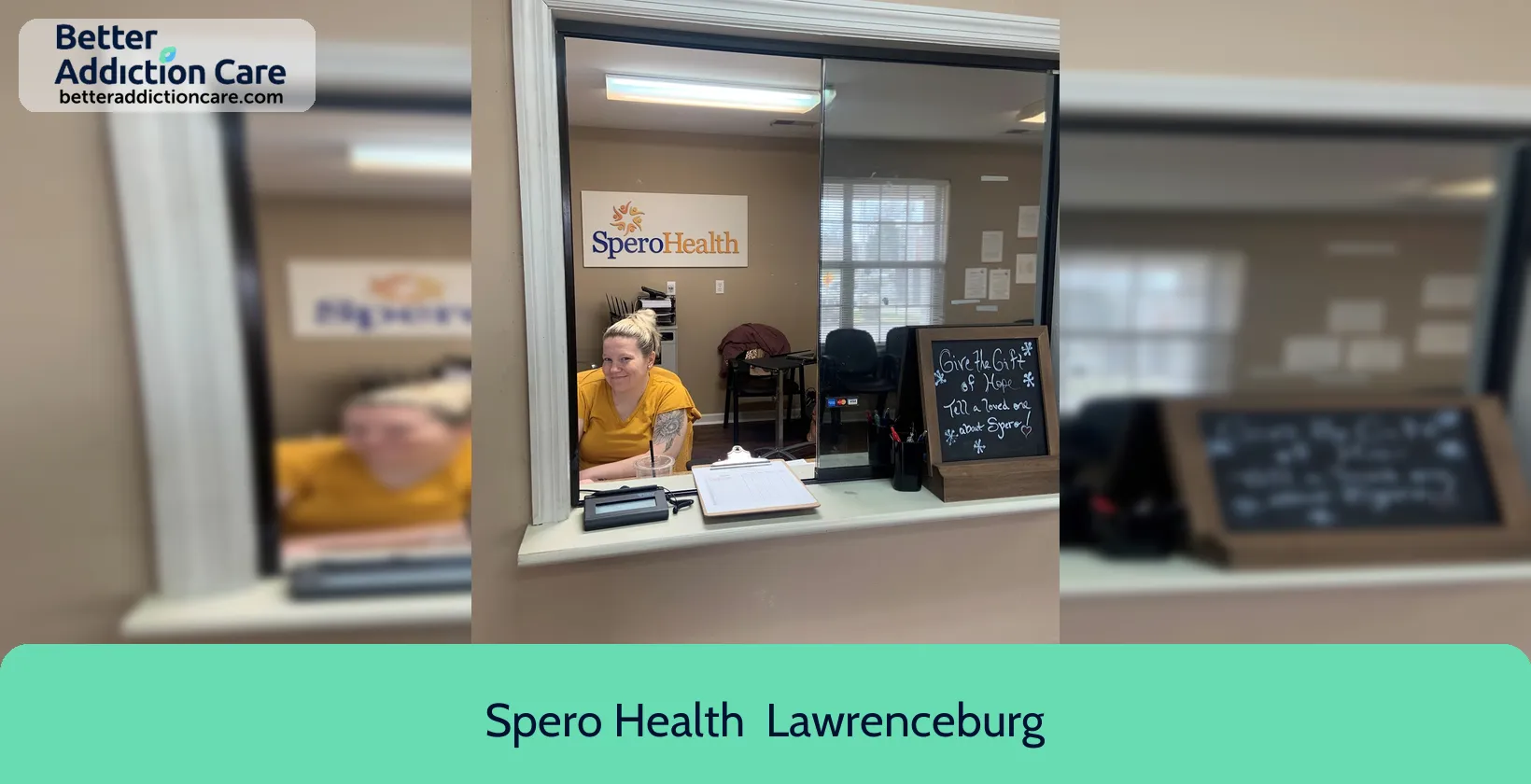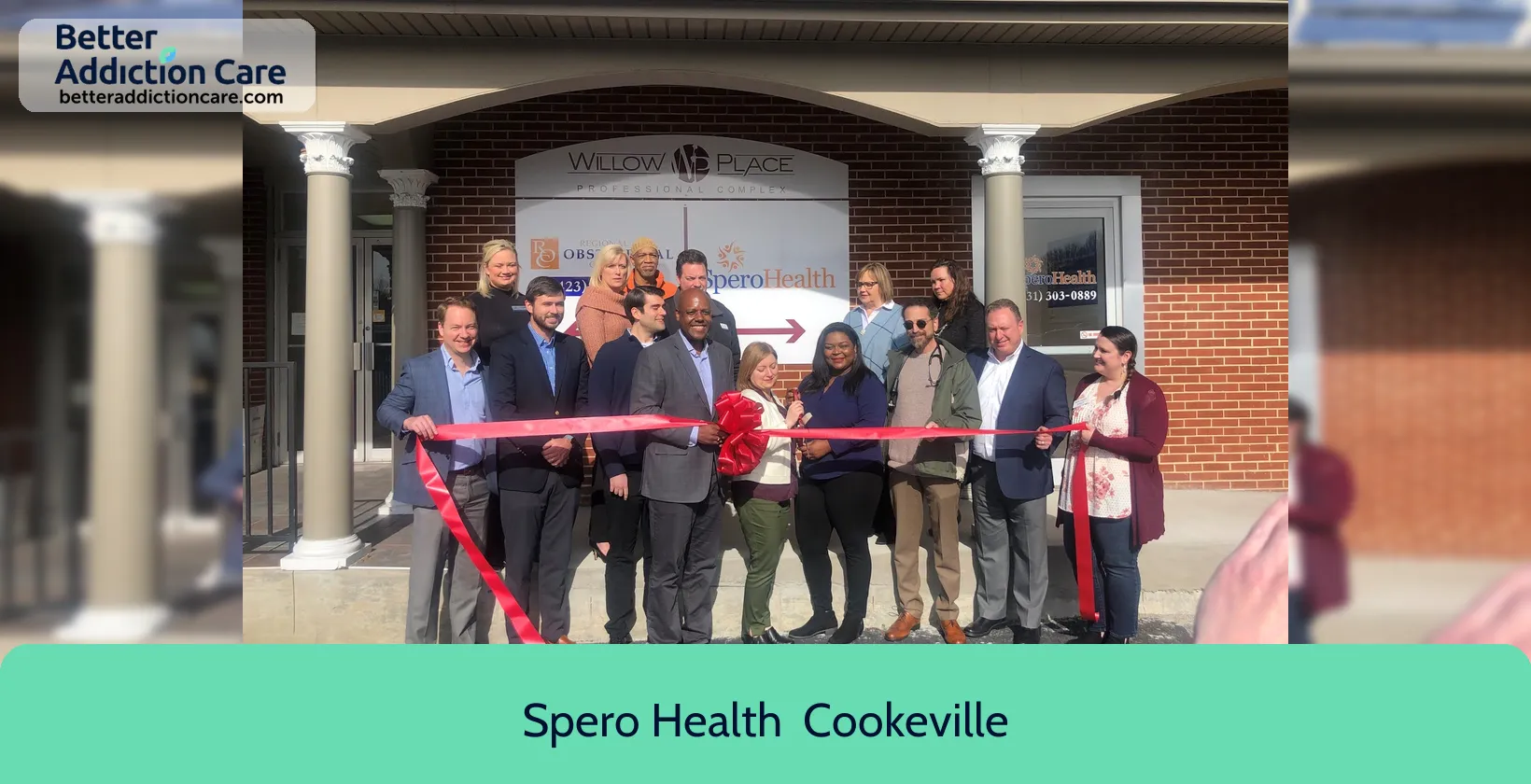Spero Health - Lawrenceburg
Overview
Spero Health - Lawrenceburg is an accredited substance abuse treatment center that provides outpatient treatment for men and women from 18+ years of age. As part of their special programs, Spero Health - Lawrenceburg treats clients who have experienced trauma. To help patients achieve sobriety, Spero Health - Lawrenceburg provides intake assessments. Afterward, patients receive family counseling, individual psychotherapy, and dialectical behavior therapy during treatment. Spero Health - Lawrenceburg is located in Lawrenceburg, Tennessee, providing treatment for people in Lawrence County, accepting medicaid, private health insurance, and cash or self-payment.
Spero Health - Lawrenceburg at a Glance
Payment Options
- Medicaid
- Private health insurance
- Cash or self-payment
Assessments
- Comprehensive substance use assessment
Age Groups
- Adults
- Young adults
Operation
- Private for-profit organization
Highlights About Spero Health - Lawrenceburg
6.62/10
With an overall rating of 6.62/10, this facility has following balanced range of services. Alcohol Rehabilitation: 8.00/10, Drug Rehab and Detox: 6.00/10, Insurance and Payments: 6.00/10, Treatment Options: 6.49/10.-
Alcohol Rehabilitation 8.00
-
Treatment Options 6.49
-
Drug Rehab and Detox 6.00
-
Insurance and Payments 6.00
Accreditations
Commission on Accreditation of Rehabilitation Facilities (CARF):

CARF accreditation is a prestigious recognition for rehabilitation and human service organizations. It signifies that an organization meets high-quality standards and is committed to providing top-level care. CARF conducts rigorous evaluations to ensure compliance, enhancing an organization's credibility and reassuring clients and funders of exceptional service quality. This accreditation promotes excellence and continual improvement in the rehabilitation and human services field.
Treatment At Spero Health - Lawrenceburg
Treatment Conditions
- Alcoholism
- Substance use treatment
Care Levels
- Intensive outpatient treatment
- Outpatient
Treatment Modalities
- Family counseling
- Individual psychotherapy
- Dialectical Behavior Therapy
- Group counseling
- Trauma-related counseling
Ancillary Services
Special Programs
- Clients who have experienced trauma

Additional Locations
Get Help Now
Common Questions About Spero Health - Lawrenceburg
Contact Information
Other Facilities in Lawrenceburg

6.71
DISCLAIMER: The facility name, logo and brand are the property and registered trademarks of Centerstone, and are being used for identification and informational purposes only. Use of these names, logos and brands shall not imply endorsement. BetterAddictionCare.com is not affiliated with or sponsored by Centerstone.
